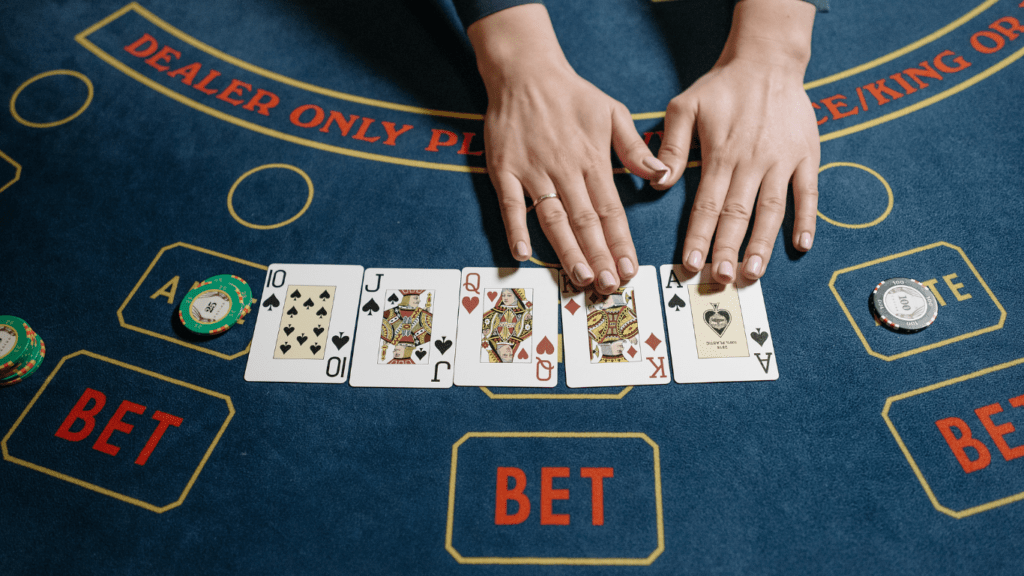Gambling can be thrilling, but without a solid plan, it can quickly spiral out of control. I’ve seen many people struggle with their gambling habits, often feeling overwhelmed by their spending. That’s why structuring your gambling spend wisely is crucial.
By breaking it down into daily, weekly, and monthly budgets, you can enjoy the excitement while maintaining control over your finances. In this article, I’ll share effective strategies for managing your gambling budget.
Whether you’re a casual player or a more serious bettor, having a clear structure will help you make informed decisions and prevent overspending. Let’s dive into how you can create a gambling budget that works for you, ensuring you enjoy the fun without the financial stress.
Understanding Gambling Expenditure
Gambling expenditure refers to the amount of money spent on gambling activities, encompassing bets, buy-ins, and related expenses. Understanding these costs is crucial for cultivating responsible gambling habits.
Importance of Budgeting in Gambling
Budgeting plays a vital role in managing gambling expenditures. Establishing a budget prevents excessive spending and fosters a better gaming experience. I allocate specific amounts for daily, weekly, and monthly gambling, ensuring I stick to my limits.
This structured approach reduces the risk of financial strain and enables me to enjoy gambling without anxiety. By setting limits, I maintain control over my finances and minimize the impact of losses.
Factors Influencing Gambling Spend
Several factors influence gambling spending. These include:
- Frequency of Play: Regular gamblers may spend more than those who gamble occasionally.
- Type of Games: Different games demand varying buy-ins and wager amounts. For instance, table games like poker often require higher stakes than slot machines.
- Bonus Offers: Promotions can increase spending as I may chase the value of bonuses.
- Emotional State: Gambling while feeling stressed or excited can lead to impulsive decisions and increased expenditure.
- Social Pressure: Friends or social events can encourage more gambling, impacting my spending habits.
Understanding these factors helps me make informed decisions regarding my gambling budget, promoting responsible habits while still enjoying the activity.
Daily Gambling Spending
Establishing a daily gambling budget is crucial for maintaining control over spending. By doing this, I create space for enjoyable gaming while keeping my financial health in check.
Setting Daily Limits
I determine daily limits based on my overall budget and financial situation. Setting a specific daily spend amount prevents impulsive decisions that often lead to overspending. For instance, if my monthly gambling budget is $300, I might allocate $10 per day.
This structured approach allows me to enjoy gambling without risking significant financial loss. I remember to adjust these limits if my financial situation changes, ensuring that I always gamble responsibly.
Tracking Daily Expenditures
I prioritize tracking my daily gambling expenditures to maintain awareness of my spending habits. Using a simple spreadsheet or a budgeting app, I record every bet, win, and loss throughout the day.
This method offers insight into my gambling patterns, helping identify potential problems before they escalate. By regularly reviewing my recorded data, I can adjust my daily limits or strategies as needed. Consistently tracking expenditures supports long-term financial health, allowing me to enjoy gambling safely and responsibly.
Weekly Gambling Spend Strategies
Establishing effective weekly gambling spend strategies provides control and enhances the enjoyment of the experience. A structured weekly budget can help me manage my gambling habits effectively.
Weekly Budget Planning
Creating a weekly budget entails determining a fixed amount allocated for gambling activities each week. I can assess my overall financial situation and then decide how much of that can safely go toward gambling.
For instance, if my monthly gambling budget is $300, I might set a weekly limit of $75. Allocating specific amounts for different days can also help me avoid impulsive spending. Using budgeting apps or spreadsheets can simplify the process, allowing me to track my spending and make adjustments as necessary.
Assessing Weekly Wins and Losses
Evaluating weekly wins and losses is crucial for refining my gambling strategies. By reviewing my gambling outcomes each week, I can gauge whether my approach aligns with my budget. I’ll note total wins and losses to understand my net spending.
For example, if I spend $75 but win $125 in a week, my net gain might influence my next budget allocation. I can also identify patterns in my gambling behaviors, such as which games yield the best returns or trigger higher losses. This reflection allows me to adjust my strategies and maintain responsible spending, ensuring I enjoy gambling without financial stress.
Monthly Gambling Budgeting
Monthly budgeting plays a crucial role in managing gambling expenses effectively. By setting clear spending limits for the month, I can enjoy my gambling experience without the burden of financial stress.
Monthly Reviews and Adjustments
Monthly reviews help me assess my gambling habits and financial standing. I analyze my wins, losses, and overall spending compared to my established budget. For instance, if my monthly budget is $300 and I find that I’ve spent $350, it indicates the need for adjustments.
During this review, I identify patterns in my gambling behavior, such as frequent losses in specific games. If I notice these trends, I reconsider my approach and make necessary adjustments. By modifying my monthly budget based on these insights, I can enhance my gambling strategies and maintain responsible spending.
Long-term Financial Impact
The long-term impact of my gambling budget significantly affects my overall financial health. Consistent adherence to a structured monthly budget prevents the accumulation of excessive debt and promotes savings.
For example, if I allocate $300 for gambling each month and stick to it, I avoid falling into debt or experiencing financial strain. Additionally, setting limits ensures that I can invest in other areas of my life, such as savings or leisure activities. This disciplined approach to gambling not only maintains enjoyment but also contributes positively to my long-term financial stability.

 Abigail Wilton brought strategic clarity and operational discipline to the foundation of Wager Legend Zone. With a background in digital content management and audience engagement, she helped shape the platform’s editorial vision, ensuring that every article, tip, and feature delivered true value to bettors. Her organizational leadership was instrumental in developing the site’s content structure and user experience, helping transform a bold idea into a reliable betting resource trusted by many.
Abigail Wilton brought strategic clarity and operational discipline to the foundation of Wager Legend Zone. With a background in digital content management and audience engagement, she helped shape the platform’s editorial vision, ensuring that every article, tip, and feature delivered true value to bettors. Her organizational leadership was instrumental in developing the site’s content structure and user experience, helping transform a bold idea into a reliable betting resource trusted by many.